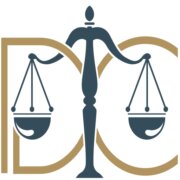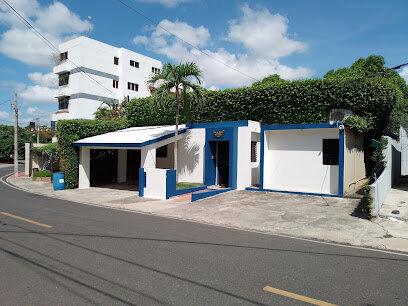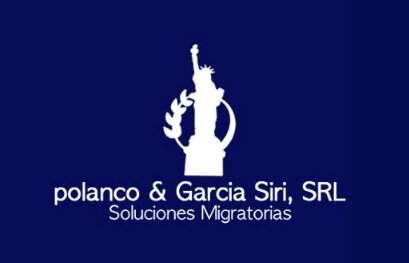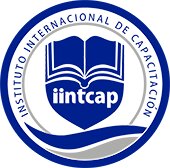Best ADR Mediation & Arbitration Lawyers in Santiago de los Caballeros
Share your needs with us, get contacted by law firms.
Free. Takes 2 min.
List of the best lawyers in Santiago de los Caballeros, Dominican Republic
About ADR Mediation & Arbitration Law in Santiago de los Caballeros, Dominican Republic
Alternative Dispute Resolution (ADR), which includes mediation and arbitration, is an increasingly popular way to resolve legal disputes outside of the traditional court system in Santiago de los Caballeros and throughout the Dominican Republic. ADR offers parties the chance to resolve their differences in a faster, more cost-effective, and confidential manner. In Santiago de los Caballeros, both mediation and arbitration are promoted by local courts and private organizations as viable alternatives for civil, commercial, labor, and even some family disputes. Legal frameworks governing ADR are in line with international standards, ensuring fairness and enforceability.
Why You May Need a Lawyer
While ADR processes are often conceived as less adversarial than litigation, seeking legal advice is highly recommended to ensure your rights and interests are fully protected. Common situations where you may need a lawyer in ADR mediation or arbitration include:
- Complex commercial or contract disputes
- Labor disagreements between employers and employees
- Family law matters such as divorce or child custody
- Property or real estate conflicts
- Negotiating settlement agreements
- Representation during arbitration hearings
- Drafting and reviewing arbitration or mediation clauses in contracts
- Enforcing or challenging arbitral awards
- Interpreting Dominican ADR laws and their procedural requirements
Local Laws Overview
In Santiago de los Caballeros, ADR is governed by the laws of the Dominican Republic, especially Law No. 489-08 on Commercial Arbitration and pertinent sections of the Civil Procedure Code. Key points include:
- Voluntary Participation: Parties must agree to use mediation or arbitration, often stipulated in pre-existing contracts.
- Neutral Mediators and Arbitrators: Impartial third parties facilitate or decide disputes, and both parties must consent to their appointment.
- Binding Decisions: Arbitration awards are generally final and enforceable before Dominican courts, except in some cases where challenging the award is permitted.
- Confidentiality: ADR proceedings are confidential, which protects the privacy of the parties and the details of the dispute.
- International Consistency: Dominican law is influenced by international treaties like the New York Convention, making foreign arbitral awards enforceable locally.
- Institutional and Ad Hoc Options: Disputes can be managed by reputable arbitration centers or resolved on an ad hoc (case-by-case) basis.
Frequently Asked Questions
What is the difference between mediation and arbitration in Santiago de los Caballeros?
Mediation involves a neutral third party helping disputing parties reach a voluntary agreement, while arbitration results in a binding decision by an appointed arbitrator.
Is an arbitration award enforceable in local courts?
Yes, arbitration awards are generally enforceable in Dominican courts under Law No. 489-08, including those issued by international tribunals recognized under relevant treaties.
Do I need a lawyer to participate in mediation or arbitration?
While not mandatory, having a lawyer greatly helps in protecting your interests and navigating the procedures effectively.
Can mediation or arbitration resolve any type of dispute?
Most civil, commercial, and labor disputes can be resolved through ADR, but criminal matters and certain family law cases must proceed through the courts.
How long does the ADR process usually take?
Mediation or arbitration is typically faster than litigation. The duration depends on case complexity, but many disputes are resolved within weeks or a few months.
Are ADR proceedings confidential?
Yes, both mediation and arbitration are strictly confidential in the Dominican Republic, providing privacy protection for the parties involved.
How much does it cost to mediate or arbitrate a dispute?
Costs vary based on the complexity of the dispute, the fees of mediators or arbitrators, and any institutional charges. It is generally less expensive than court litigation.
What happens if the other party does not comply with an arbitration award?
The prevailing party can request enforcement of the award through local courts, which have the authority to compel compliance.
Where can I find recognized arbitration or mediation centers in Santiago de los Caballeros?
Most notable centers are part of local chambers of commerce or bar associations. A lawyer can recommend the best institution based on your case.
Can I appeal an arbitration decision?
Arbitration awards are generally final, with appeals only allowed under specific and limited circumstances such as evidence of procedural irregularity or lack of impartiality.
Additional Resources
If you are seeking advice or assistance with ADR mediation and arbitration in Santiago de los Caballeros, the following resources can be helpful:
- Chamber of Commerce and Production of Santiago: Provides information and access to arbitration services through its Arbitration and Conciliation Center.
- Dominican Bar Association (Colegio de Abogados): Offers directories of lawyers with experience in ADR.
- Judicial Power of the Dominican Republic: Official body overseeing all court-related ADR procedures.
- Ministry of Labor: Especially useful for labor disputes involving mediation and arbitration.
- Legal Aid Offices: For individuals with limited resources needing guidance on ADR processes and legal representation.
Next Steps
If you believe ADR mediation or arbitration is the right solution for your dispute in Santiago de los Caballeros, consider the following steps:
- Evaluate your legal situation and define your objectives for resolution.
- Consult with an experienced lawyer specializing in ADR in Santiago de los Caballeros for personalized advice.
- Gather all relevant documents, contracts, or agreements related to your dispute.
- Identify whether your contract contains an ADR clause or if an agreement to mediate or arbitrate can be reached with the other party.
- Select a reputable mediation or arbitration institution, or request guidance from your lawyer on appointing neutral third parties.
- Prepare for and actively participate in ADR sessions with the assistance of your legal representative.
- If an agreement or award is reached, follow legal procedures for enforcement or implementation with your lawyer’s guidance.
Lawzana helps you find the best lawyers and law firms in Santiago de los Caballeros through a curated and pre-screened list of qualified legal professionals. Our platform offers rankings and detailed profiles of attorneys and law firms, allowing you to compare based on practice areas, including ADR Mediation & Arbitration , experience, and client feedback.
Each profile includes a description of the firm's areas of practice, client reviews, team members and partners, year of establishment, spoken languages, office locations, contact information, social media presence, and any published articles or resources. Most firms on our platform speak English and are experienced in both local and international legal matters.
Get a quote from top-rated law firms in Santiago de los Caballeros, Dominican Republic — quickly, securely, and without unnecessary hassle.
Disclaimer:
The information provided on this page is for general informational purposes only and does not constitute legal advice. While we strive to ensure the accuracy and relevance of the content, legal information may change over time, and interpretations of the law can vary. You should always consult with a qualified legal professional for advice specific to your situation.
We disclaim all liability for actions taken or not taken based on the content of this page. If you believe any information is incorrect or outdated, please contact us, and we will review and update it where appropriate.













